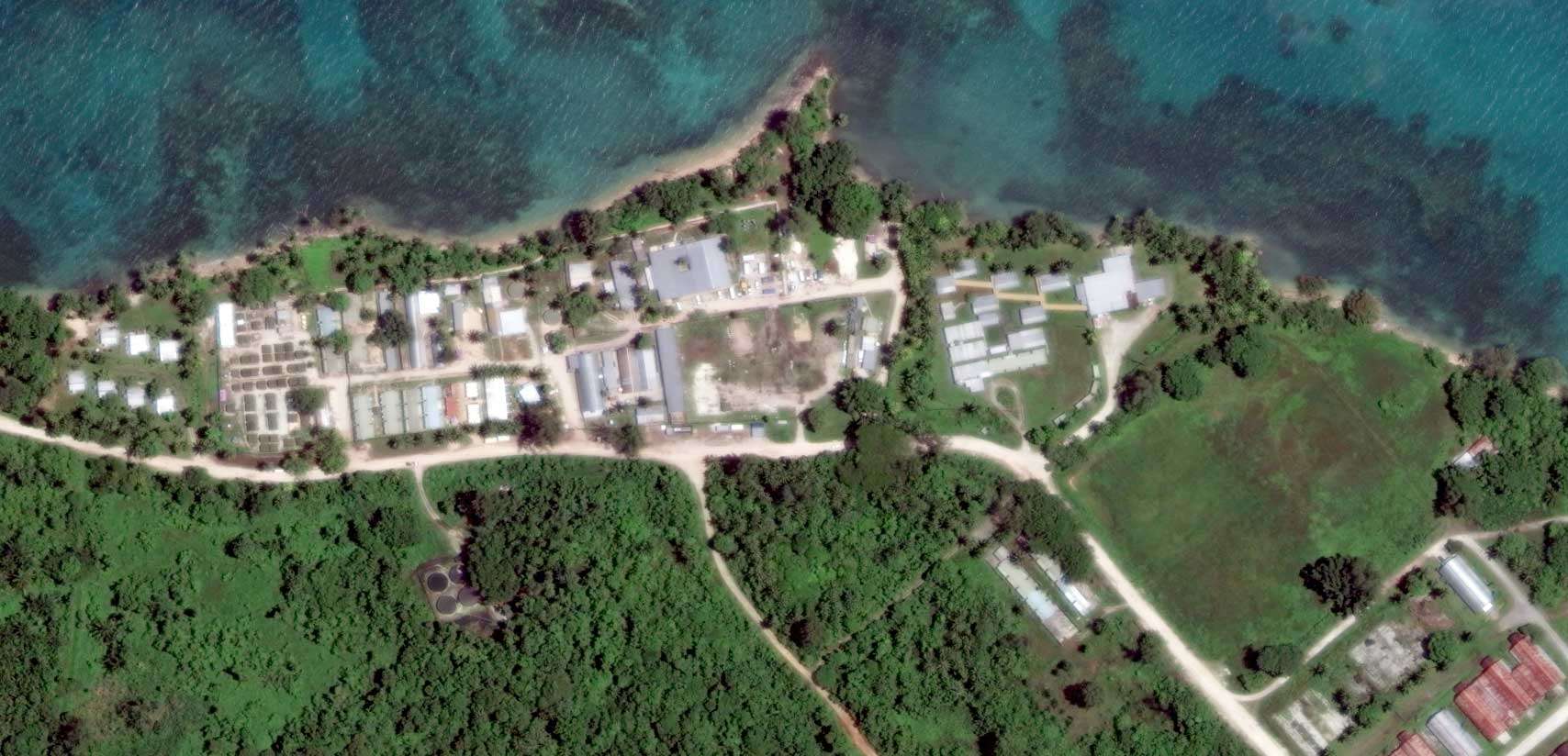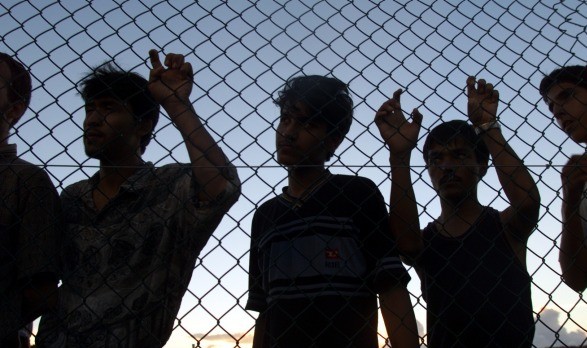Gay Manus Island Detainees: “Why Is Nobody Asking About Us?”
By Samuel Leighton-Dore
For the past month I’ve been speaking with an Iranian detainee on Manus Island named Mahmoud* (not real name). As a gay man, Mahmoud spoke to me of the struggles faced by him and his fellow detainees; the abuse and mistreatment suffered so regularly at the hands of guards; the false accusations of abuse and the consequent trials; the cruel deprivation of food and water in solitary confinement.
Recently, he agreed to write an open letter for me to share with the Australian public. After all, he has far more riding on this weekend’s federal election than most and, as he tells me, the entire camp are waiting with bated breath for the result.
After over three years locked up like an animal, Mahmoud is now facing the possibility of resettlement in Papua New Guinea – or return to his home country of Iran. Homosexuality is illegal and punishable by imprisonment or execution in both countries.

His letter reads as follows:
It was and always is the question: Why?
People always ask me why and they don’t even try to ask how?!
It was Tuesday night when almost the whole camp were updated about Q&A. It was a different experience for everyone, as they were aware that Behrooz Bouchani had asked Malcolm Turnbull a question. It was obvious that the question was about us, the refugees and asylum seekers.
He asked Malcolm Turnbull WHY he has been detained for 3 years without committing any crime. Many of the guys here criticized him in different ways. Some asked WHY he did not ask a better question. Some asked WHY he did not ask more questions. Some asked WHY his question was not complete.
And finally someone asked why didn’t he say WE instead of I?
On the other hand, in the corner of the detention centre and even in some of the dorms – in small bunk beds covered with bed-sheets to make a little bit of privacy – we have had secret discussions with the guys whose voices you won’t be able to hear.
No, they are not mute. Even they can speak some English to raise their questions, but they are scared. It’s not safe, and so they can’t.
Yes, I am talking about the homosexuals of Manus. I am so far aware of six of them who talk to me openly because they trust me. I know these guys from the meetings I’ve shared with them as their interpreter. Those meetings are not happening anymore as the harassment of other guys like them was reaching its peak.
So now I can tell you more about the question WHY! These men also have hopes – they are listening to the debate. They are scared and they are worried about their safety and future. In my perspective, their concern is even more genuine than anyone else here, because they have a well funded fear of persecution.
They just want to know why nobody is asking about us.
Why nobody is asking the politicians in power how they’re able to accept our torture to reach their political agenda – WHY they’re risking our lives as homosexuals in a country that says homosexuality is a crime and is punishable by up to 14 years of imprisonment?
The Prime Minister and his Immigration Minister Peter Dutton insist that we will never got to Australia, and we’ve heard many times that Peter Dutton has stated that we’re insisting on getting to Australia. He is wrong. We are not insisting on Australia.
We just need a safe country.
As Bill Shorten has said, he will send his immigration minister on the first day of his government to discuss our settlement with UNHCR and the countries that are part of the UNHCR resettlement agreement. This is a humane solution.
Yes, we understand that there are many Australians who hate us. That’s very clear for us, as we are experiencing their harsh and inhumane treatment on Manus Island. But it doesn’t mean that we have to be kept in detention on this island forever.
There are many countries in the world, such as those participating in the UNHCR resettlement program, that we can be settled in and start rebuilding our lives – instead of being languished in poor nations that are still struggling with their own people, like Papua New Guinea, Nauru, Cambodia, and the Philippines.

